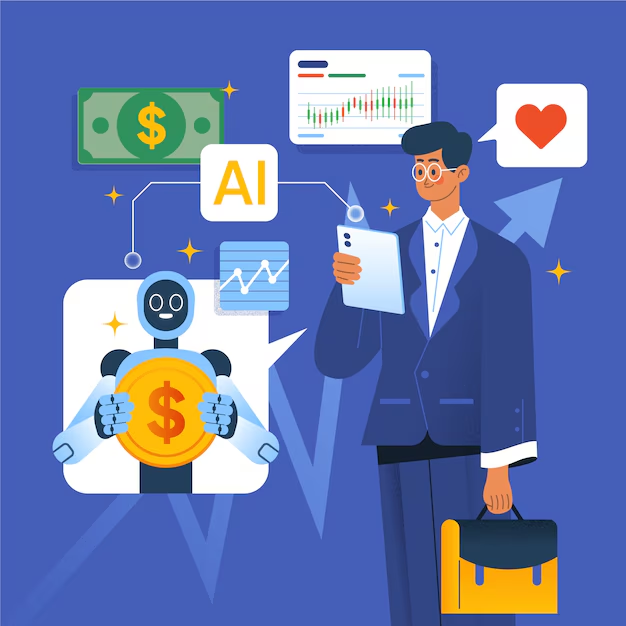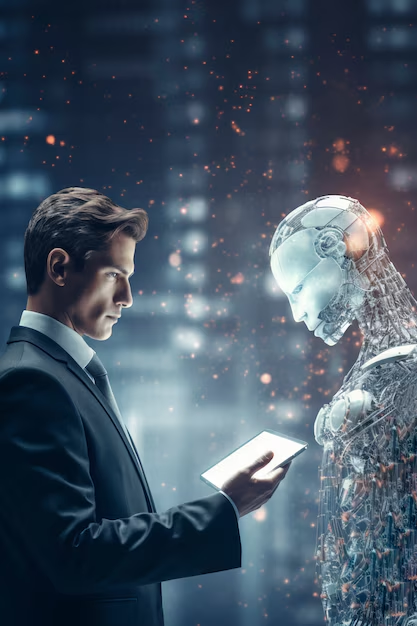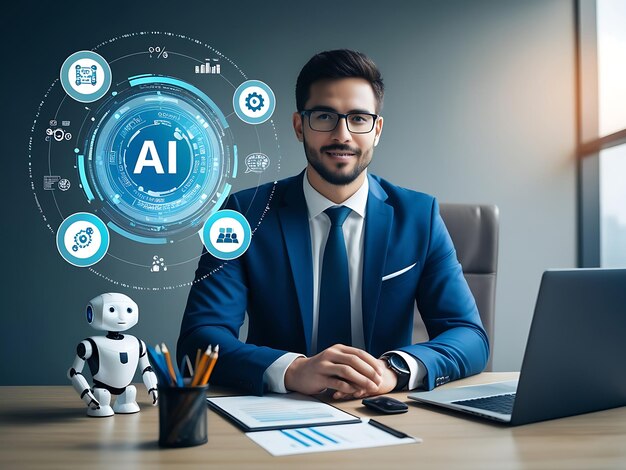
Table of Contents
The digital marketing landscape is rapidly evolving, and one of the most significant changes we’ve witnessed in recent years is the rise of Artificial Intelligence (AI). From automating repetitive tasks to offering personalized experiences, AI is revolutionizing the way we approach marketing. However, with this surge of AI-powered tools, the question arises: Will digital marketing be replaced by AI?
This article dives deep into the potential future of digital marketing, assessing whether AI can fully replace human marketers or whether there will always be a place for human creativity and strategy. Along the way, we’ll explore the possibilities and limitations of AI in marketing and how businesses can adapt to these new technologies.
The Current Role of AI in Digital Marketing
AI has already established a prominent role in many aspects of digital marketing. From predictive analytics to personalized content, AI helps marketers become more efficient and precise. Here are some key areas where AI is currently used:
- Content Creation: AI tools are used to generate high-quality content, such as blog posts and social media updates, allowing brands to scale their content production.
- Ad Targeting and Optimization: AI-powered platforms analyze vast amounts of data to identify key audiences, ensuring that ads reach the right people, improving return on investment (ROI).
- Chatbots and Customer Service: AI-driven chatbots handle customer inquiries 24/7, providing quick and efficient responses while freeing up human agents to handle more complex issues.
- Personalization: AI enables hyper-personalized marketing by analyzing consumer data, ensuring customers receive highly relevant content, offers, and recommendations.
Despite these advances, the real question is whether AI can fully take over the field or if human input is still necessary.
Can AI Replace the Human Element in Digital Marketing?

While AI is an incredible tool, it is unlikely to replace digital marketing entirely for several reasons.
1. Creativity and Emotional Intelligence
AI can generate text, design ads, and suggest strategies based on data, but it struggles to replicate human creativity and emotional intelligence. Crafting messages that resonate on a deeply emotional level requires human intuition and empathy—qualities that AI currently lacks. Effective digital marketing relies heavily on storytelling, branding, and creating genuine connections with the audience. These elements require not only creativity but also an understanding of cultural nuances, emotions, and human behavior.
2. Strategic Thinking
AI excels at processing data and making short-term decisions based on patterns, but it lacks the ability to create long-term strategies. Human marketers, on the other hand, are able to think critically and make strategic decisions that align with broader business goals. Digital marketing involves more than just analyzing numbers; it requires interpreting data in a way that informs comprehensive, forward-thinking strategies.
3. Complex Problem Solving
AI is excellent at automating routine tasks, but when it comes to complex problem-solving, human input is still necessary. Marketing challenges often require innovative solutions that consider multiple variables, such as brand identity, audience behavior, and market trends. AI can assist in analyzing data, but human marketers are still needed to draw insights and develop creative solutions to unique challenges.
The Future of AI in Digital Marketing

While AI is unlikely to replace digital marketing as a whole, its role is certainly expanding. Here are some ways AI will continue to influence the industry:
1. AI-Powered Automation
Automation will continue to play a significant role in digital marketing. AI tools that automate processes like email marketing, content generation, and ad optimization will become even more sophisticated. This will free up time for marketers to focus on more creative and strategic tasks.
2. Hyper-Personalization
AI’s ability to analyze consumer data will allow for even more personalized marketing. Hyper-personalization will enable businesses to deliver content that is tailored to the individual preferences and behaviors of each consumer, resulting in higher engagement and conversion rates.
3. Voice Search Optimization
With the rise of voice assistants like Siri and Alexa, AI will play a crucial role in optimizing content for voice search. Businesses will need to adjust their SEO strategies to ensure they are visible in voice search results.
Preparing for an AI-Driven Future
To remain competitive in the evolving digital marketing landscape, marketers need to embrace AI tools while enhancing their own creative and strategic capabilities. Here are some tips for staying ahead of the curve:
1. Learn About AI Tools
Marketers should stay informed about the latest AI tools and trends. By understanding how AI works and how it can be integrated into marketing strategies, they can leverage its strengths while avoiding potential pitfalls.
2. Focus on Skills AI Can’t Replace
While AI excels at tasks like data analysis and automation, human marketers should focus on developing skills that AI cannot easily replicate, such as creative problem-solving, strategic thinking, and emotional intelligence.
3. Collaborate with AI
Rather than viewing AI as a threat, marketers should see it as a tool that can augment their efforts. By collaborating with AI, marketers can improve efficiency and focus on tasks that require human insight and creativity.

Conclusion: Will AI Replace Digital Marketing?
AI is transforming digital marketing by making it more efficient, data-driven, and scalable. However, the unique qualities that human marketers bring—creativity, emotional intelligence, and strategic thinking—are irreplaceable. While AI will continue to take on a more prominent role in automating tasks and providing insights, the human element will always be crucial in crafting compelling marketing strategies and building genuine relationships with customers.
Ultimately, AI should be seen as a powerful tool that complements and enhances human efforts rather than replacing them entirely. Digital marketing will continue to evolve, but humans will remain at the heart of it.

Add a Comment